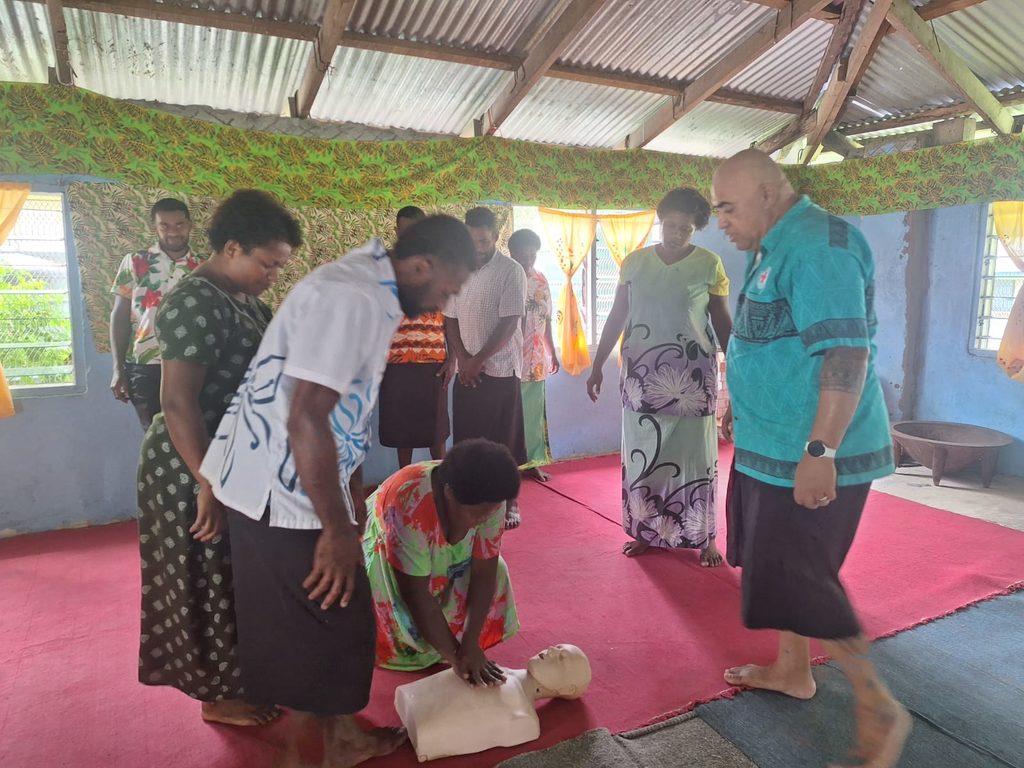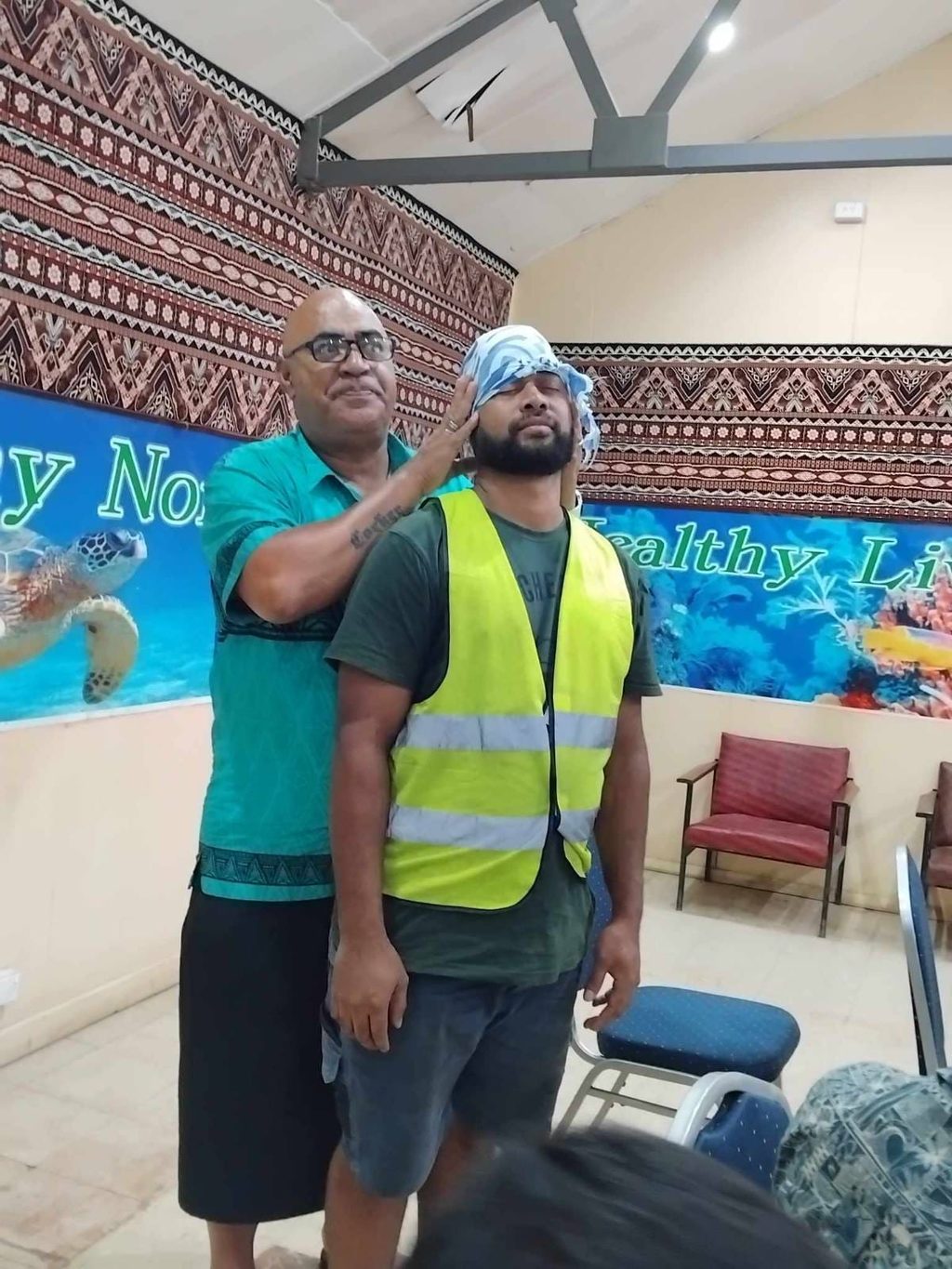World First Aid Day is celebrated Saturday, 13th September and this year it is celebrated, under the theme “First Aid and Climate Change.”
When the theme was announced, the most common question I heard was: How exactly are First Aid and Climate Change related?
To explore this, I reached out to one of our experienced First Aid Instructors, Viliame Taufa Cocker.
Viliame has been training communities with the Fiji Red Cross Society for the past eight years. His journey began as a volunteer, but through dedication and passion, he became a certified First Aid Trainer, Water Safety instructor, and “Mind a Child” facilitator.
This year alone, he has conducted training in six communities across the Western Division, certifying up to 180 people. When I asked him what these communities had in common, his answer was immediate: they are all prone to flooding, a challenge now intensified by Climate Change.
Flooding is not just about water rising; it creates ripple effects that affect the health and safety of entire communities. People face risks of drowning, injuries from debris, and worsening of existing health conditions. For children, older people, and people with disabilities, these dangers multiply.
“That’s where first aid comes in,” Taufa explained.
And it finally struck me — the connection between climate change and first aid is clear. As disasters become more frequent and severe, the ability of ordinary people to respond appropriately in emergencies becomes a matter of survival.
During crises, adults are often looked up to, carrying the responsibility to protect themselves and others until medical help arrives. Parents, teachers, caregivers, and even neighbours are the ones who must act in those crucial first minutes.
With first aid training, they can provide immediate, life-saving care and help reduce the long-term impacts of disasters. In this sense, first aid is not just a skill; it is a community’s frontline defence against the escalating threats of climate change.
Globally, the scale of risk is staggering. Research suggests that 1.47 billion people, nearly 19 per cent of the world’s population, are directly exposed to flooding during once-in-a-century events.
For Fiji, where communities live along coastlines, rivers, and flood-prone valleys, the numbers translate into lived realities each cyclone or period of heavy rainfall. Climate change is no longer a distant problem; it is here, shaping how we prepare for and respond to it.
That is why the Fiji Red Cross Society continues to invest in expanding first aid training to reach as many people as possible. It is more than teaching people how to treat cuts or bruises; it is equipping them with resilience in the face of climate-driven disasters. First aid empowers communities, strengthens collective safety, and creates a culture where people look out for one another. It fosters preventive behaviours, awareness of environmental risks, and above all, the confidence to act when lives are at stake.
This commitment ties directly to our vision of Keeping Humanity Alive.
At its core, first aid training reflects what humanity means in practice — neighbours helping neighbours, families protecting children, and communities rising together to meet challenges that no one can face alone.
It embodies the Red Cross spirit of solidarity and service.
As we prepare for the Fiji Red Cross Ball 2025, this message is urgent.
The Ball is more than a night of elegance and celebration; it is a powerful reminder that humanitarian work requires collective support and collective action.
Each ticket, each partnership, and each contribution enable us to train more people like those in Taufa’s sessions. It allows us to scale up our preparedness and extend our reach to the most vulnerable.
So, when you think about World First Aid Day this year, remember Taufa’s words and the communities he serves.
First Aid is not only about saving lives in the moment — it is about building resilience in a world where climate change is rewriting the rules of safety.
And together, through our shared commitment, we are truly Keeping Humanity Alive.
Viliame Taufa Cocker, right, teaches how CPR is performed to Natawa villagers. Picture: SUPPLIED



